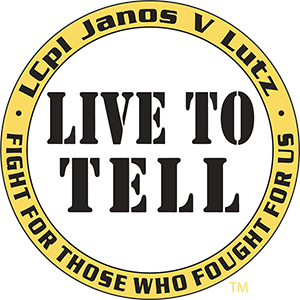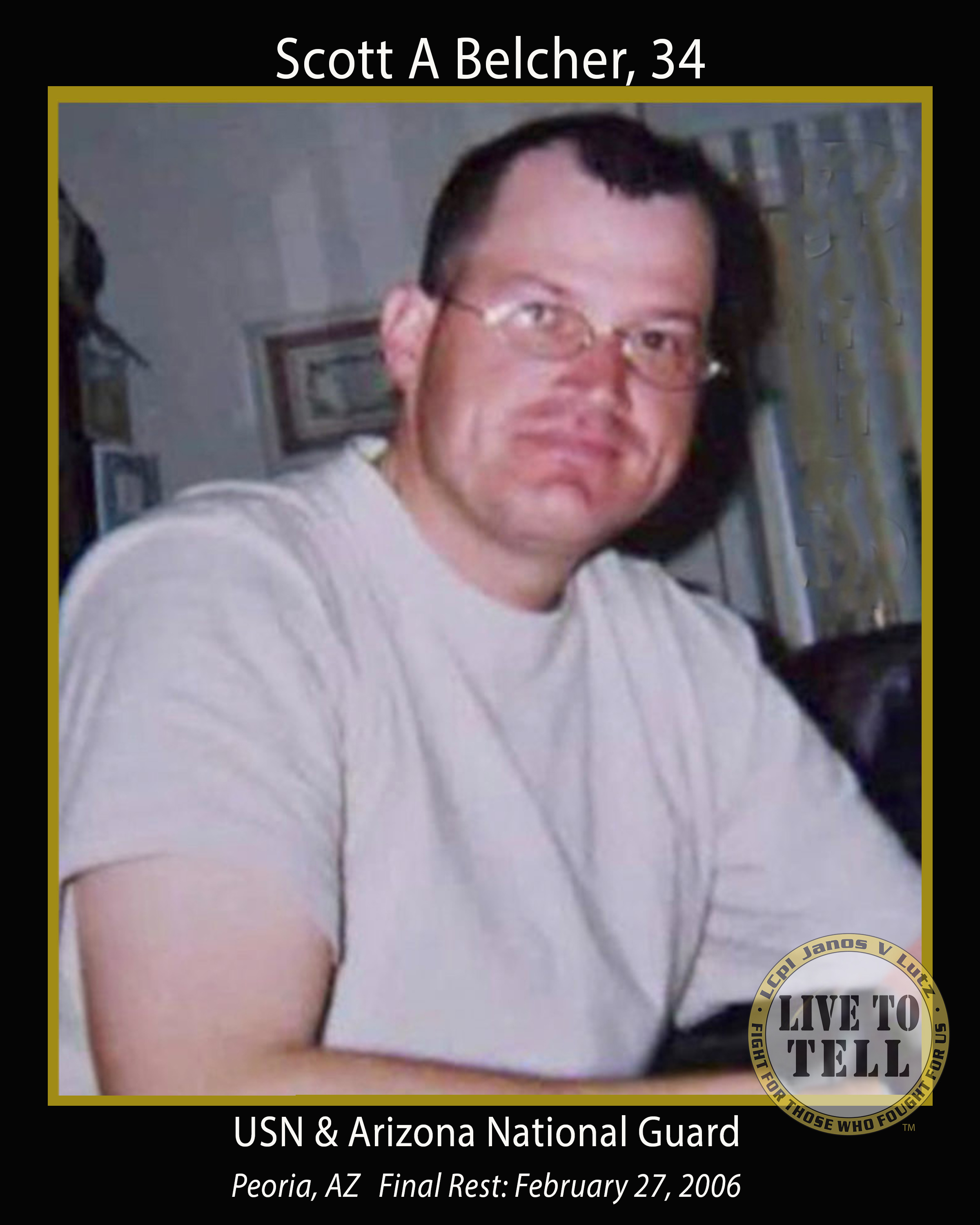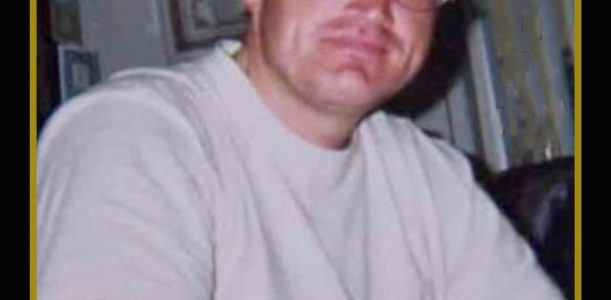
Arizona Army National Guardsman 860th Company Scott A Belcher of Peoria, Arizona, beloved nephew of June and Buddy Passmore.
In Scott Belcher’s family, joining the military was just something you did. His aunts, uncles, and grandparents served their country, so it was only natural that he joined the Navy followed by the Arizona National Guard. He loved it. “You just do stuff for your country, and that’s how our family was raised. You do stuff for the country,” said Betty June Passmore, Belcher’s aunt. Passmore said she sewed the patches on Belcher’s uniform because she was so proud of him. “How could you not be proud of a young man that wanted to protect his country?”
About Belcher
Passmore and her husband Buddy remembered Belcher as a kind, gentle guy who loved children. When he was a kid, it was his goal to outgrow his aunt, who cared for Scott like a son. Soon enough, he did. “He was tall,” she remembered. “He always patted my head.” She said he loved deviled eggs. “He was like a son to me,” said Buddy Passmore, Belcher’s uncle. When he came home from war, something changed.
Belcher’s Struggles at Home
The war zone was intense. Although the Passmores would never know the gravity of the events Belcher witnessed, they did know he had seen a Hummer explode as it drove over a roadside bomb and killed one of his fellow soldiers. The blast damaged Belcher’s back and head. “He would have such ringing in his ears that he would grab his head and just scream it would hurt so bad,” Passmore remembered. The ringing was so loud, Belcher thought his aunt could hear it. Passmore could sense something beyond Belcher’s physical ailments was affecting her beloved nephew. He had been living with her and her husband in Arizona just days after being released from duty. “I asked him one day – I said, ‘Scott, how come you’re so different?'” recalled June Passmore. “He says, ‘If I told you some of the stuff I seen, you would not be able to handle it.’ “It just broke my heart,” she said, describing how her nephew no longer liked to be touched. “If I put my arms around him, he would just back away,” she recalled.
Belcher’s Medical Situation
Passmore told the ABC15 Investigators that he had tried to seek immediate medical attention from military doctors when he returned from war, but he was frustrated with the process. She said doctors conducted tests on his head but told Belcher it would be at least another six weeks before they knew how to handle his situation. In the meantime, she said, doctors prescribed him pills. “He slammed the pills down on the counter, and he said, ‘They’re not going to help me for six weeks!'” she said. That day, she knew he was struggling. “I heard him get in bed, and I heard him crying,” she said. “I went in and I crawled on the bed with him, and I was holding him, and I said, ‘Scott…I don’t know what you went through…I know it was bad,'” she said. “He says, ‘It’s terrible. Just please never let me go. Always love me no matter what,'” she said. “He just laid there and, even after he fell asleep, he just sobbed and sobbed,” Passmore remembered.
Belcher’s Death
During his deployment, Belcher suffered more than just the tragedy of watching a comrade die in combat. While he was deployed, Belcher’s mother passed away from cancer and his relationship with his girlfriend ended. When he returned to Arizona, he tried to rekindle the relationship with his ex-girlfriend. “They began spending time together again,” a Phoenix Police Department police report indicated. “Scott had strong feelings for her and he wanted more from their relationship,” the report said, but the woman only wanted to be friends. The woman agreed to meet Belcher one night after he had returned home to Arizona. The two spent a few hours together, chatting at a bar. Belcher had been drinking, and according to the police report, when the woman refused to stay with Belcher overnight, he grew upset. Later that evening, he killed himself.
Belcher’s Family Reacts
“I don’t think the service realizes these are human beings. They have deep emotions. They can be affected by what they see,” said Buddy Passmore, Belcher’s uncle, a Vietnam veteran himself. Decades after he served in Vietnam, Passmore sought treatment for Post Traumatic Stress Disorder (PTSD). He believed Belcher also suffered from PTSD before he took his own life. Passmore says he thinks the military should help its members better understand PTSD and the treatment for it. “Give these guys more help and realize what they went through,” he said. “Scott needed the help,” Passmore said. “I know when Scott died that he went straight to heaven,” said June Passmore. If she could talk to him again, she would tell him how much he is missed, she said. “I would hold Scott and tell him how much I love him and how much his family loves him and it’s so sad he didn’t get to live his life.”


